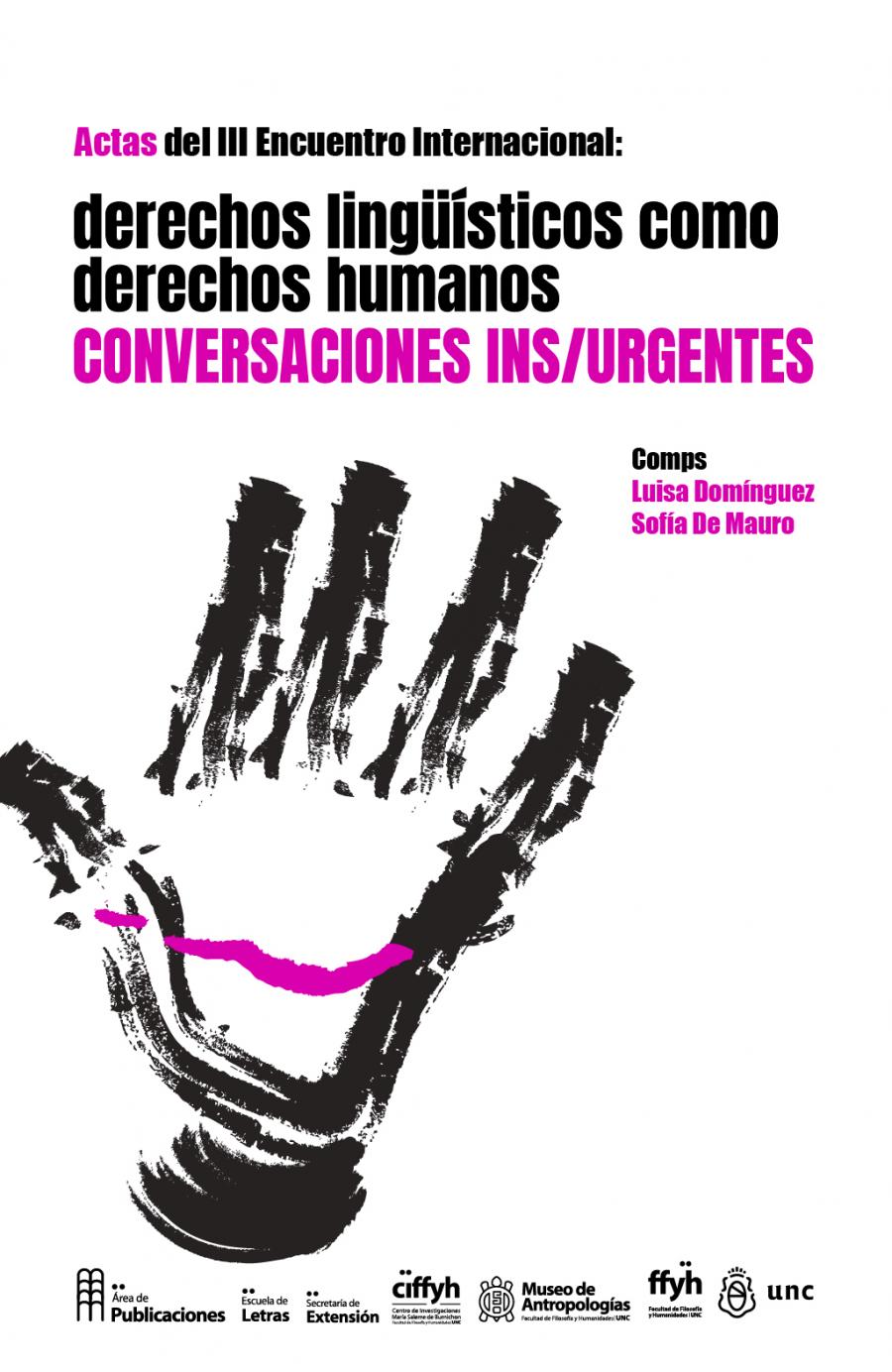Proceedings of the Third International Conference: Linguistic Rights as Human Rights: insurgent conversations
Keywords:
language rights, human rights, CórdobaSynopsis
This book aims to bring the discussions held at the Third International Conference: Linguistic Rights as Human Rights in Latin America to both the general and specialized public. We know that language studies have played a central role in the processes of minorization with their control policies and through the establishment of purist ideas about language and languages in common sense. Aware of this, this publication brings together many of those exchanges whose common thread is a critical view of our own work in the social sciences and humanities, as well as the notions and conceptualizations that come into play in our disciplines.
Chapters
-
Insurgent conversations
-
Part One
-
Linguistic Revitalization Conference: experiences, challenges, and urgent issues
-
second part
-
Human rights, economic crisis, and linguistic consequences in Argentina
-
School and language teaching from a social perspective: a debt still owed
-
The right to the majority language of the host country
-
Haitian Creole. Characteristics and its importance in the struggle for full freedom
-
third part
-
Fabular las lenguas
-
Fabulating languages: praise for linguistic variation
-
Experience, language, and storytelling: some questions
-
Who takes the sign?
-
Elements for an undisciplined linguistics
-
Inventing a language or being imposed upon: doing things with a dancing body
-
Body and writing in reading dance(ing): imagining translation, dancing languages
-
Inoculate the tongue: Animal pharmacy
-
The tongue descended to earth
-
Juana Bignozzi contemporary. Regarding "Spirit or sense of humor, whichever you prefer"
-
Public policy, justice, and rights
-
What went wrong in the debate on “hate speech”?
-
Languages as the texture of insurgent memories
-
Guaraní as a refuge of identity
-
Construction of deaf memory and identity in sign language narratives in Argentina
-
Revisiting the place name Enjamisajo
-
Oral memory and written sources in language recovery and indigenous activism: a reflection on two cases
-
Memories of languages, standardization, and resistance: linguistics at the University of Buenos Aires (1946–1955)
-
|“Where the asphalt burns.” Linguistic symbiogenesis in contemporary Mapuche literature
-
Words between grave and divergence: experiences from a workshop and a free writing pamphlet
-
Queer linguistics and linguistic rights. Drag performance on a Brazilian YouTube channel
-
Written in sex, interpellations, and bodily imaginations Written in sex, interpellations, and bodily imaginations
-
Gword and baqueteada: new (or old?) constructions of fat in X
-
How is the lesbian constructed? An essay on Pepa's sex
-
The forms of languages: artistic interventions and popular cultures
-
The walls scream. Cultural and identity marks in the graffiti of the university city
-
Sharp tongue. An ethnographic analysis of stand-up comedy as a space for linguistic resistance
-
Education, teaching methods, and alternative strategies
-
Teaching language to students with autism
-
Writing with greatness: reflections on literacy and love as a record of pedagogical experiences

Downloads
Published
Categories
License

This work is licensed under a Creative Commons Attribution-NonCommercial-ShareAlike 4.0 International License.


